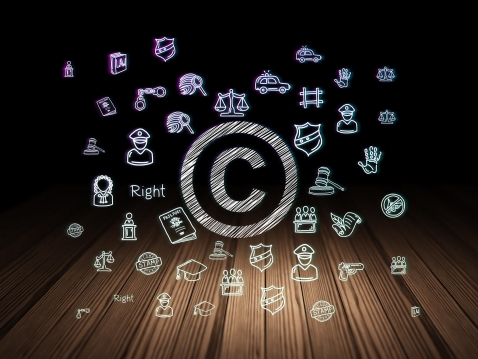Is intellectual property a barrier to reuse public sector information?
Fecha de la noticia: 05-10-2018

One of the main debates in the Internet legal field is related to intellectual property. Only a few days ago, the European Parliament approved a proposal for a copyright reform in order to adapt the regulation to technological uniqueness of the Internet. This opens a long process that will end with the reform of the regulations at European level. This may ultimately affect the conditions and scope of the limits that hinder the reuse of information held by public entities in each of the member states.
From the point of view of the current Spanish regulation, according to article 3 of Law 37/2007, of November 16, on Reuse of Public Sector Information, its provisions are not applicable to "documents under intellectual or industrial property rights by third parties". However, the same precept recognizes that the legal regulation will not affect the "intellectual property rights of administrations and public sector"; Nevertheless, at the same time, the legislator orders that the exercise of intellectual property rights by these subjects must be carried out "in a way that facilitates their reuse".
Therefore, depending on who is the owner, we can distinguish two assumptions:
A / the rights correspond to public subjects. In this case, the legal obligation to make documents reusable - in application of Article 4 of Law 37/2007 - will not be applicable, at least automatically, because there may be circumstances that justify it or limitations derived from the initial transfer of intellectual property rights.
However, the scope of this exclusion is qualified by contemplating an obligation addressed to the public authorities. Specifically, the law establish that the exercise of intellectual property rights will be carried out in a way that facilitates reuse. Therefore, administrative action must make this last legal right prevail and, therefore, measures must be adopted to actively promote it. In this context, the licensing regime can be decisive.
However, according to article 4.8 of Law 37/2007, the availability for reuse would not impede the Administration or the body holding the intellectual property rights from taking advantage of the document; although the marginal costs - article 7- must be respected in any case, as well as and the equality requirement related to the conditions applied to other users.
Finally, in case of a possible conflict between both legal rights, generally, reuse should prevail, unless justified and consistent reasons were present, especially in the case of an application for reuse according to article 10 of Law 37/2007; a provision that also requires, in general, to inform about the identity of the person who owns the rights.
B / The information is affected by other subjects’ intellectual property rights. Administrations or public entities could not provide this information for reusing. The current and general legal obligation cedes against a legal right corresponding to a third party. That is, the intellectual property rights of third parties prevail, but taking into account the following aspects:
- Administrations and public bodies are responsible for adopting an active intellectual property management policy aimed at facilitating the reuse of their documents. In this sense, when the owners voluntarily cede their exploitation rights -let us remember that the moral faculties cannot be transmitted because they are inalienable-, public entities should try to include the reuse in the transfer, according to Law 37 / 2007, although it cannot be considered that there is an obligation of achieving this result in a possible negotiation in the strict sense.
- On the contrary, when the public entity itself is the promoter of the legal relationship and it object includes rights related to intellectual property, the provisions of the public sector contracting legislation must be met. In this point, even if the legal relation does not establish a general obligation to the contractor, the fact is that the general regulation on reuse does force public authorities to adopt active measures to facilitate document reuse and, therefore, an eventual refusal to incorporate the assignment of such rights as part of the contractual relationship should be justified. In this sense, as a general rule, the legislator has established a presumption favorable to assignment in service contracts, which undoubtedly facilitates the reuse by third parties when the administrative clauses or the contract document do not express the opposite.
In short, although the incidence of intellectual property rights could hinder reuse, public administrations and agencies can address this challenge implementing an active management policy, so that the limitations contemplated by the current regulations would not be an authentic and definitive barrier to reuse.
Content prepared by Julián Valero, professor at the University of Murcia and Coordinator of the Research Group "Innovation, Law and Technology" (iDerTec).
Contents and points of view expressed in this publication are the exclusive responsibility of its author.











